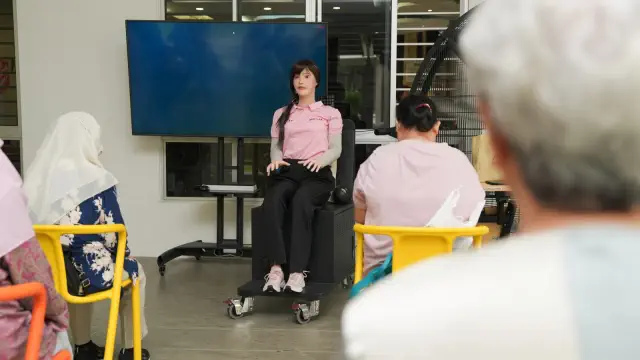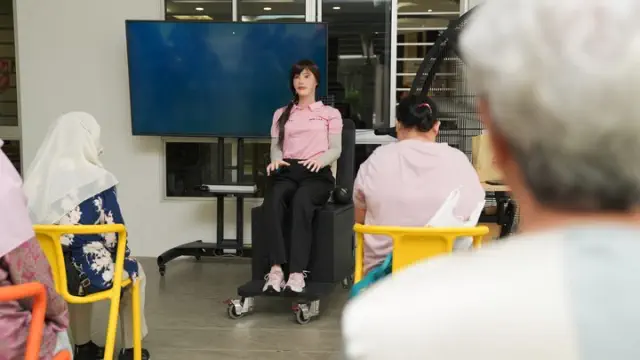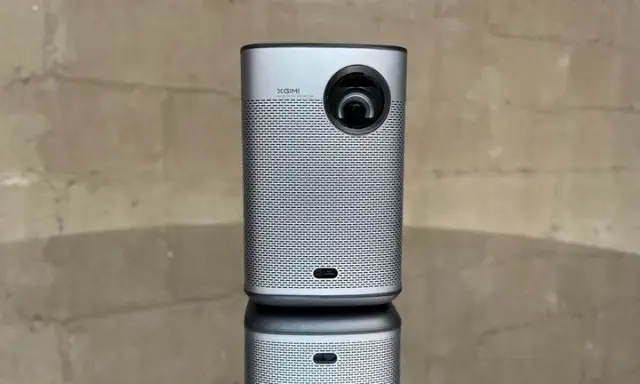
View pictures in App save up to 80% data.
Singapore's elderly population encounters considerable difficulties, yet groundbreaking solutions such as artificial intelligence hold the potential to transform eldercare and boost the quality of life for seniors.
In Singapore, older adults face a distinct array of challenges as they move through their twilight years. One of the most significant concerns is loneliness, a condition that can severely impact mental well-being and, consequently, the health of their families. With an estimated 20% of the population expected to be aged 65 and above by 2030, the imperative to develop effective measures to alleviate loneliness is increasingly critical. This rising demand places technology in a pivotal role—especially artificial intelligence (AI), which can be customized to cater to the specific requirements of the elderly.
The SoundKeepers initiative demonstrates the potential of innovative technology to significantly enhance the mental well-being of older adults. This program utilizes state-of-the-art voice biomarker technology to examine vocal patterns, enabling the early identification of depression symptoms in seniors. By identifying subtle changes in voice, caregivers are equipped to take timely action, offering assistance before issues escalate. With the growing need for effective mental health solutions, initiatives like SoundKeepers highlight the transformative role of AI in elderly care, providing unique advantages for those involved.
The ongoing shortage of healthcare workers, particularly nurses, has intensified the difficulties associated with providing sufficient eldercare. Recent estimates suggest a substantial shortfall that may jeopardize the quality of care available to numerous elderly individuals. In this scenario, the implementation of AI technology is crucial, as it can optimize workflows and boost the efficiency of the current workforce. By incorporating AI into everyday eldercare practices, caregivers can dedicate more time to individualized interactions, while automated tools handle administrative responsibilities. This approach not only enhances the quality of patient care but also reinforces Singapore's status as a pioneer in cutting-edge eldercare innovations.
The government of Singapore acknowledges the difficulties faced in eldercare and the importance of technology in addressing these issues. With a remarkable investment exceeding 1 billion Singapore dollars in artificial intelligence resources, the government demonstrates its dedication to improving healthcare services for the aging population. This substantial funding indicates to entrepreneurs, researchers, and technology developers that there is ample opportunity for growth and innovation in the eldercare sector. Both startups and well-established firms can pursue innovative solutions with confidence, backed by considerable financial support for successful initiatives and improvements.
The potential of AI in eldercare is indeed appealing, but it brings with it significant ethical dilemmas that must be addressed. One major issue is the concern for privacy, particularly as technologies designed to assess mental health through voice analysis gather and retain sensitive personal information. Safeguarding patient data is of utmost importance, as any breaches could severely undermine trust and the quality of care provided. It is essential for caregivers and developers to work together in designing systems that emphasize security, guaranteeing that patient information is kept private and utilized exclusively for its intended functions.
Moreover, as artificial intelligence increasingly finds its place in the healthcare sector, concerns arise regarding the possibility of technology supplanting human interactions. Older adults frequently flourish through personal relationships, and the true nature of caregiving extends far beyond simple medical support. AI tools and applications should enhance, not substitute, human care. It is crucial that while technology supports healthcare efforts, it preserves the compassion and humanity that are fundamental to fostering meaningful connections. Therefore, adopting a harmonious strategy that combines human engagement with technological advancements is essential.
The integration of technology with human interaction holds great promise for enhancing the lives of elderly individuals in Singapore. By utilizing AI in a responsible and ethical manner, we can cultivate a setting where seniors experience a sense of connection, appreciation, and support. Realizing this vision necessitates a cooperative effort among businesses, governmental organizations, and healthcare professionals, all striving together to forge a future where technology complements rather than complicates the landscape of eldercare.
The way ahead is brightened by the continuous incorporation of AI into healthcare systems. This evolution represents not merely a technological advancement; it signifies a steadfast dedication to enhancing the welfare and respect for the elderly within our communities. For families in search of answers, early detection technology for depression can guarantee that relatives receive prompt support, while caregivers gain access to resources that lighten their responsibilities without compromising essential human supervision.
In summary, as Singapore addresses the challenges posed by an aging population, the incorporation of cutting-edge technologies such as AI holds significant promise for transformation. Enhanced mental health monitoring has the capacity to revolutionize elder care, tackling issues of loneliness and improving the overall quality of life. Nevertheless, realizing this vision necessitates a careful strategy that considers ethical implications, privacy issues, and the essential human aspects of caregiving. By harmonizing these initiatives, Singapore could potentially establish a new global benchmark in eldercare that is both empathetic and technologically sophisticated.










